Win a world championship and it sticks with you for life.
Damon Hill still feels the benefit 25 years on from achieving his life’s ambition at Suzuka, Japan, in 1996. “It’s like a passport,” he says. “It’s always nice if you need to pull it out of your back pocket. There are occasions when it’s good to reflect on it.” One such was the silver anniversary – on 13 October, to be precise – when he finally got to celebrate with the people who mattered the most: the guys who ran his car. It didn’t happen at the time, for a good reason: the Williams F1 team had sacked him. It’s a saga that still beggars belief all these years later.
“I left Williams the moment I won, so I didn’t have a chance to celebrate back then,” explains Hill. “We did a few photographs at Suzuka, but after that one of the guys came with me to Arrows and I lost touch with the rest. Then this year Williams kindly got my FW18 running again at Silverstone and Bob Davies, my number one mechanic, was there. I suggested we should get together to celebrate. So we went to the factory and Williams opened up their heritage department, we had some champagne next to the car and went out for dinner. It was nice.”
Reel back to that October finale in 1996 and it proved a remarkably undramatic climax, especially in the wake of a tumultuous couple of months that had threatened to derail a title bid that previously looked nailed on. Hill’s nearest challenger was his team-mate, rookie Jacques Villeneuve, who produced what probably remains the race of his life in the penultimate round at Estoril to keep his own hopes alive at the Japanese GP. But at Suzuka, Villeneuve took pole position, then made a dreadful start and crashed out on lap 36 when he lost a wheel after a pit stop, while Hill raced serenely to a lights-to-flag victory.
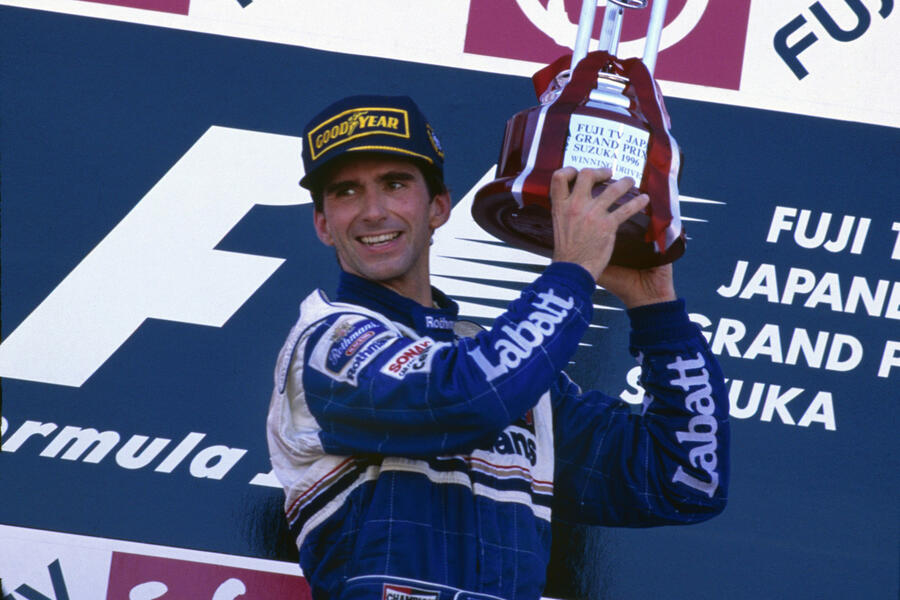
“The team came on the radio after Jacques went out and said ‘you’re world champion’,” recalls Hill. “I said something cheeky like ‘can I come in now?’ and they said ‘no, we’d prefer it if you stayed out and finished the job…’ It was nice to finish ahead of Michael [Schumacher], who was very generous and congratulated me at the end. I got a handshake from him.” He admits there was “massive relief” but also an enormous sense of satisfaction. “That overwhelms you,” says Hill. “But it doesn’t really sink in immediately because the moment you get out of the car you’ve got more duties, such as answering people’s questions.
The moment was captured perfectly by Murray Walker, who tried really hard not to be biased in favour of Hill in his BBC TV commentary – but didn’t always manage it: ‘And I’ve got to stop because I’ve got a lump in my throat’ became one of Walker’s most famous lines. Watch it back today and you can’t help smiling. “I watched it recently,” says Hill. “I’m reading Maurice Hamilton’s new book on Murray and it reminds you how important his words were. And as wonderful as he was, he sometimes didn’t get all the facts right. I noticed he said ‘Damon Hill, son of Graham Hill, who won the world championship in 1962 and 1965…’ It was actually 1968, but that doesn’t matter! Bless him.”


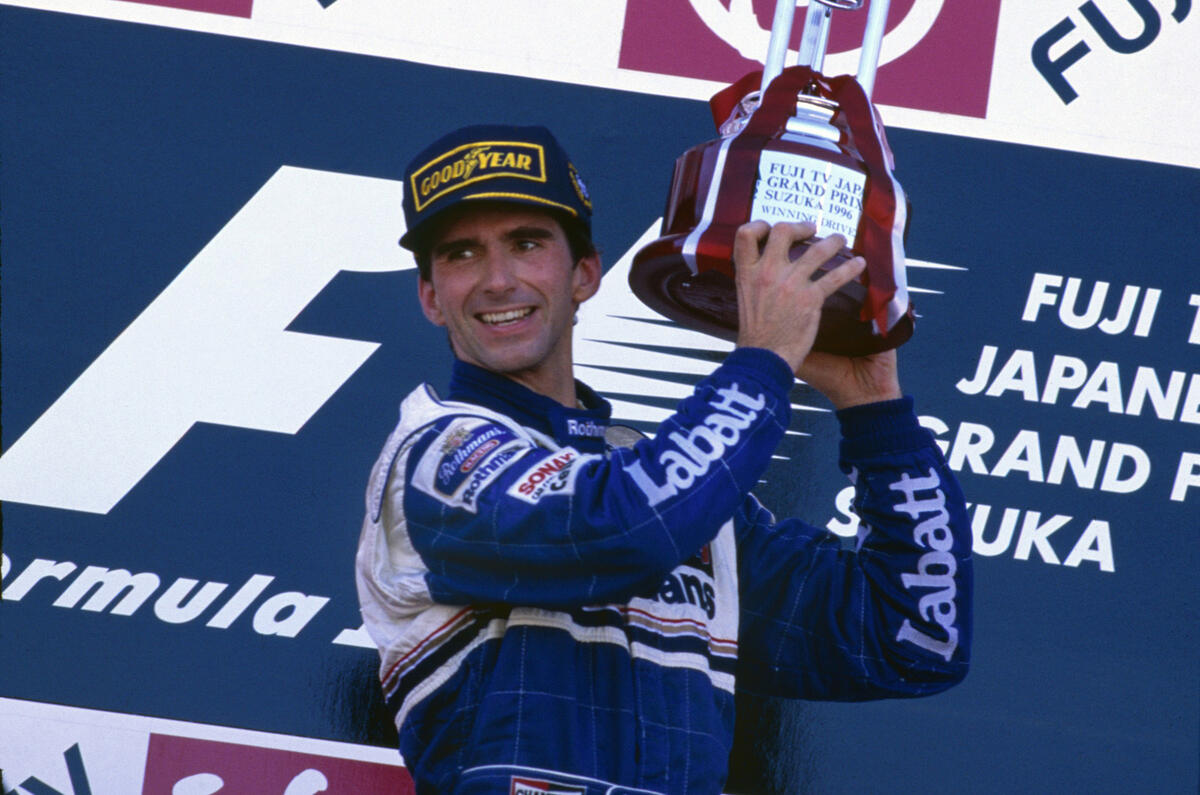
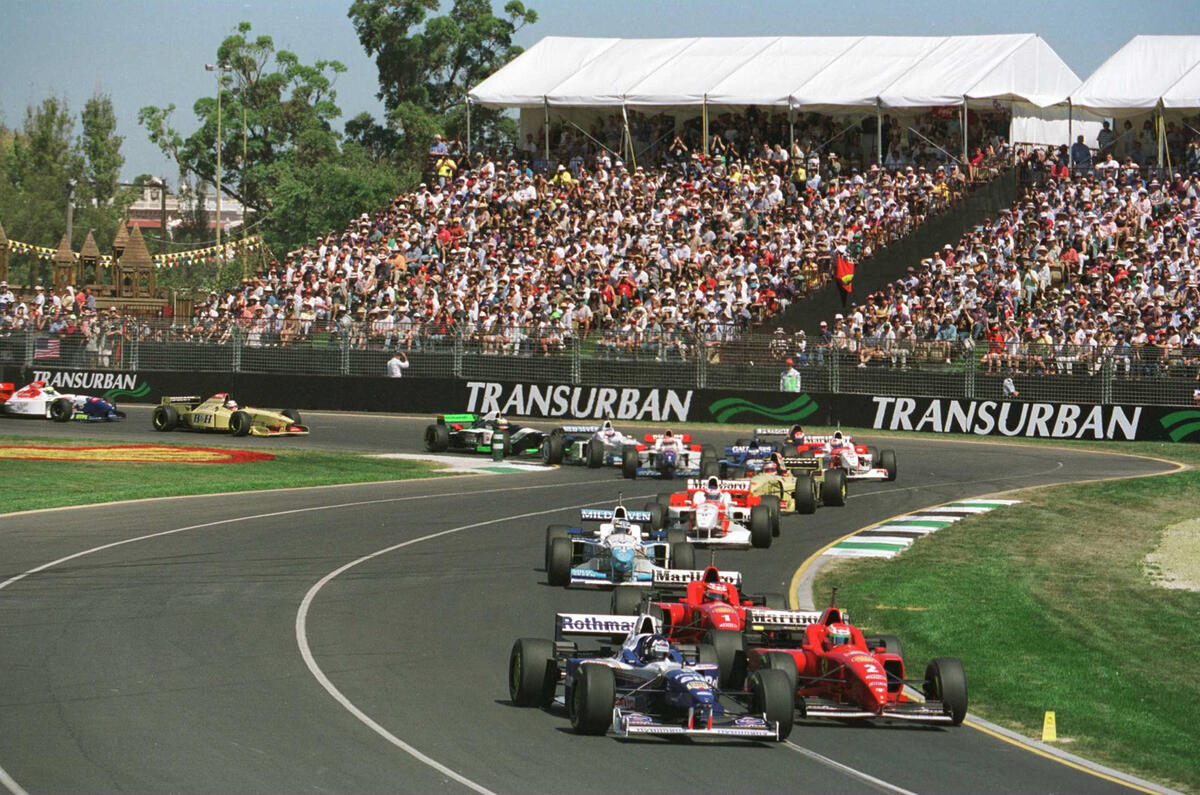

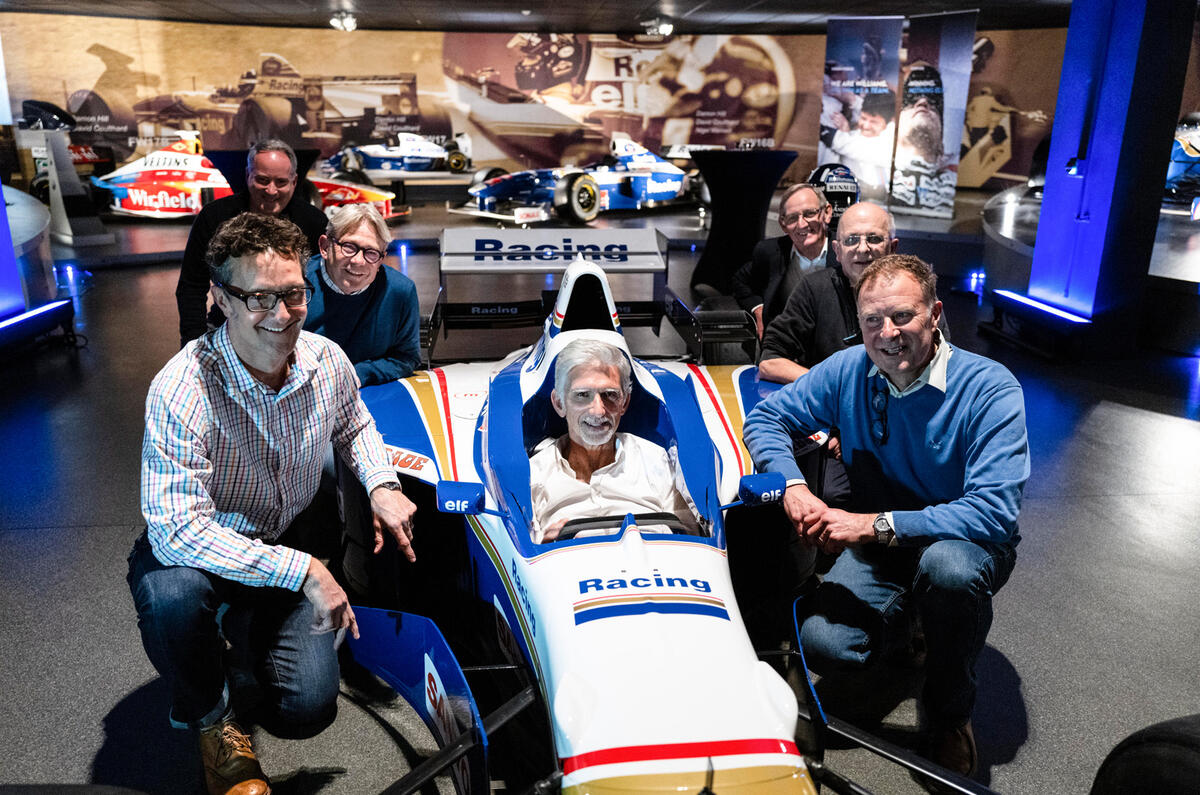
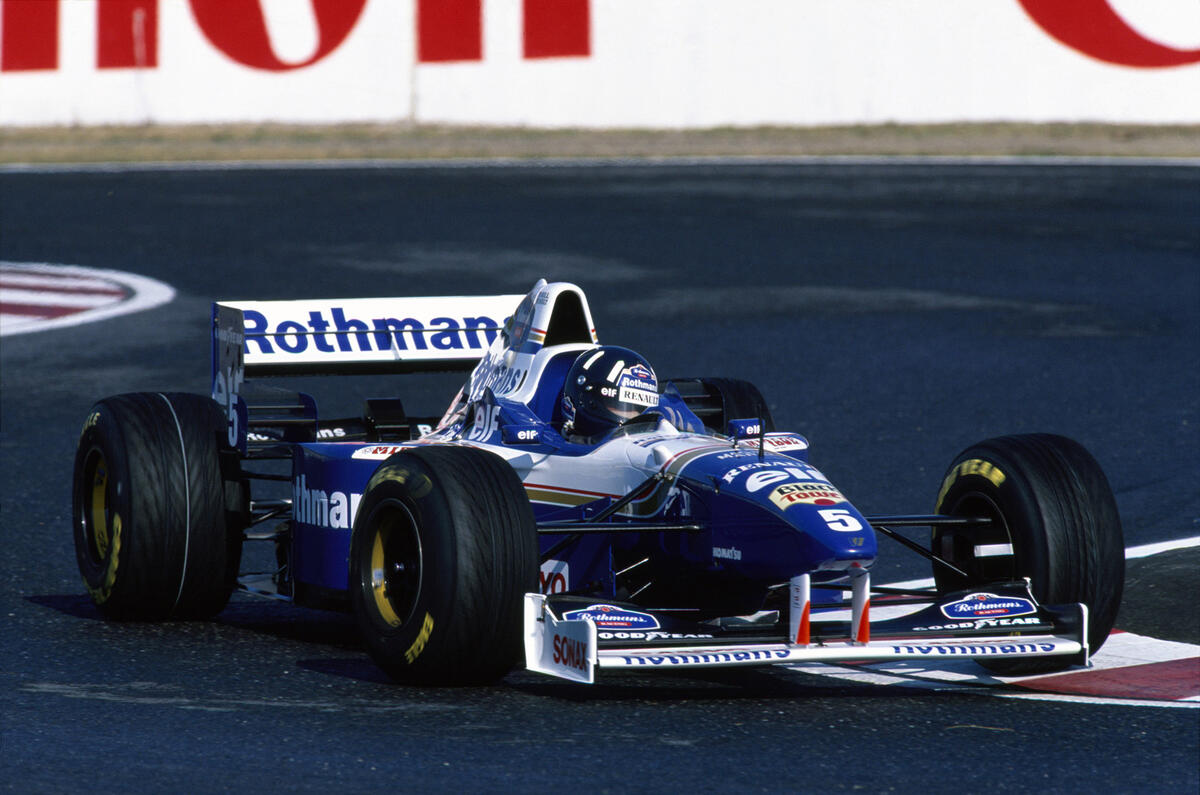
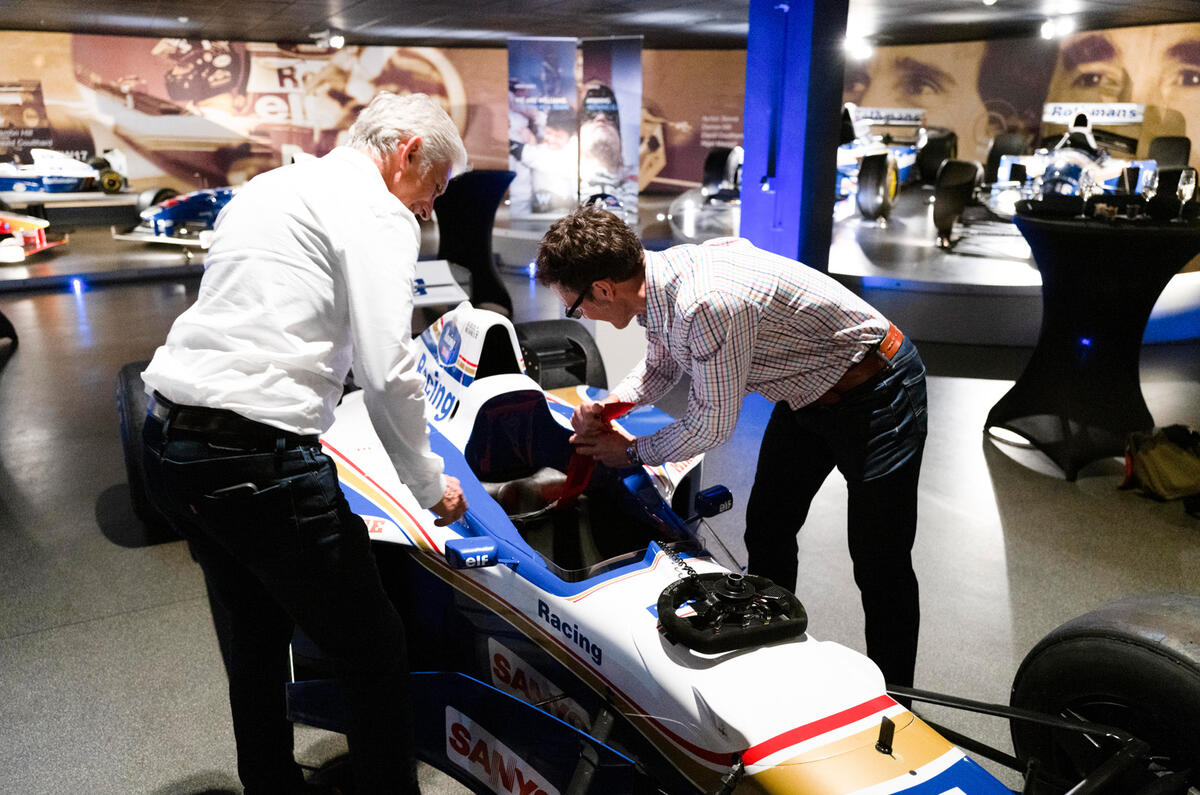
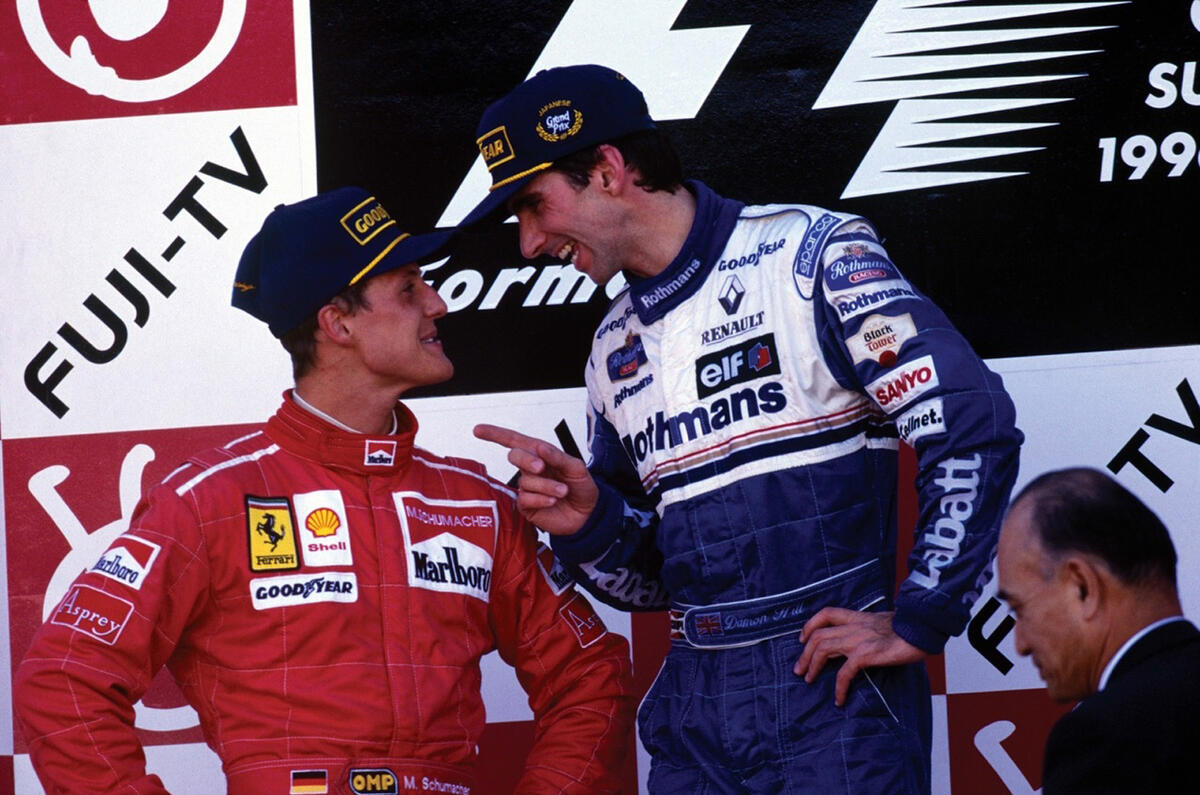

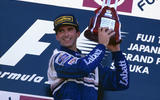
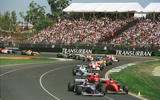


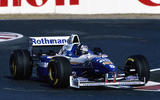
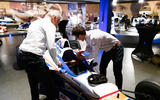
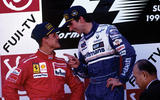

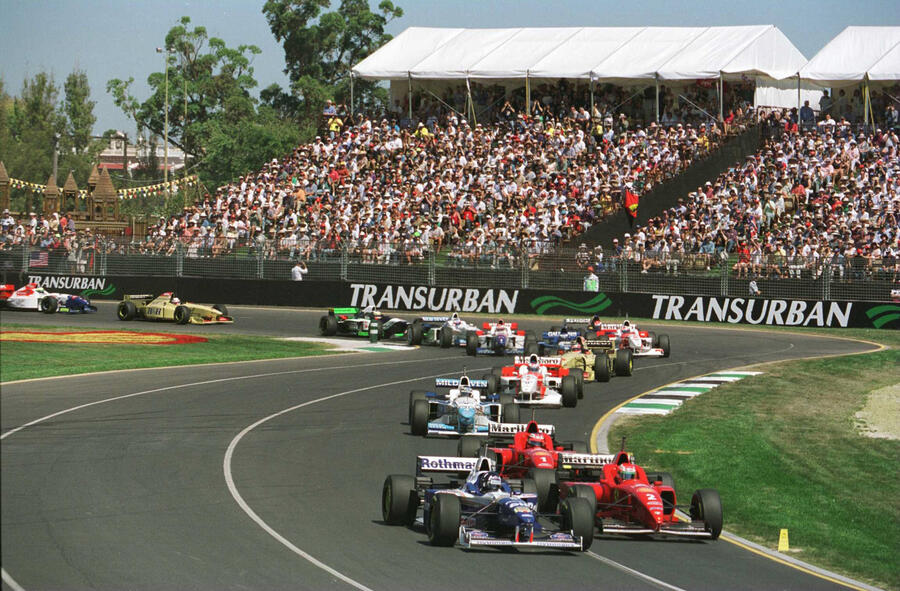
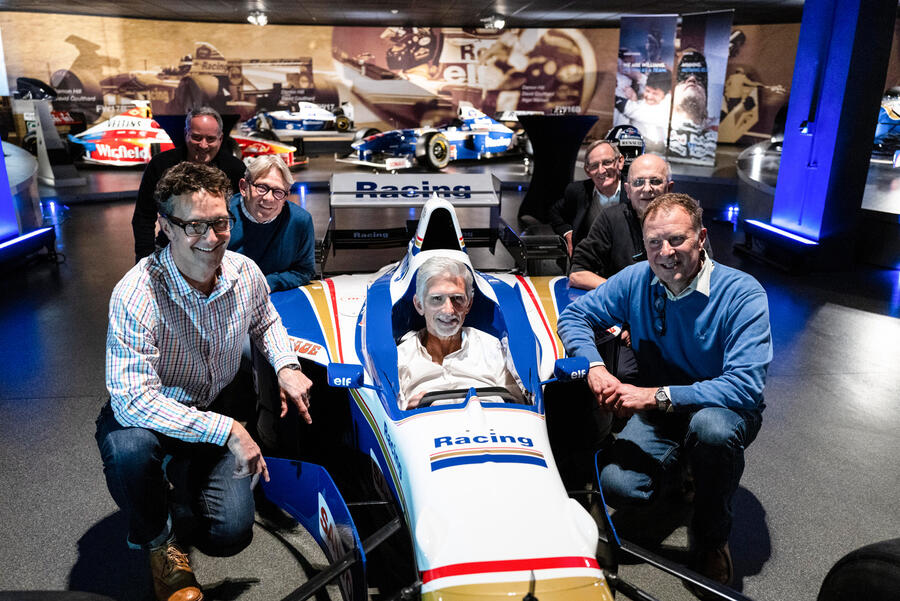
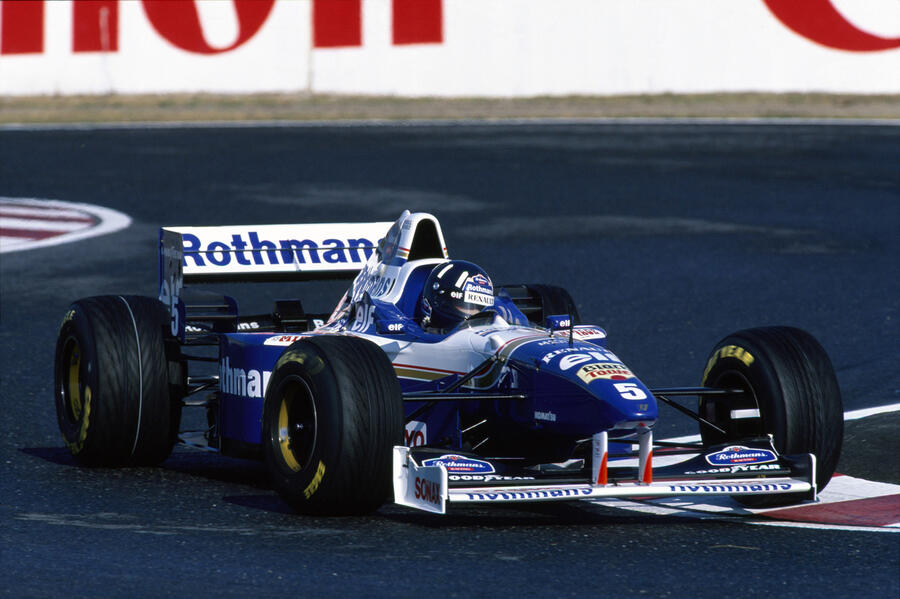
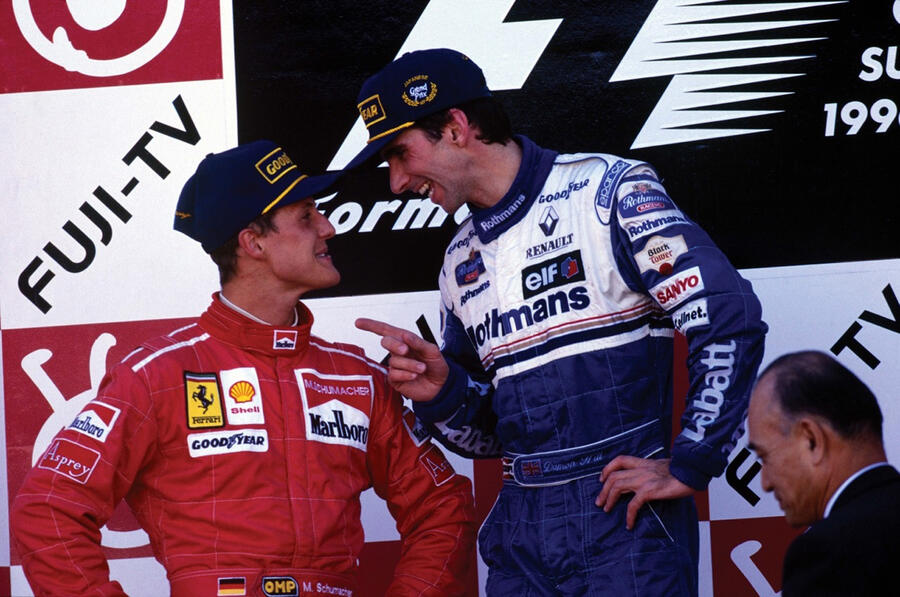

Join the debate
Add your comment
Damon was a good driver, to me a great testament to applying yourself even if you aren't a natural talent and tackling people who were "born into it". He might have had 2 world championships if he never got crashed into in '94.
The Ghost of Damon Hill Past...
Damon Hill was a terrific driver, who laboured under the baggage of his father's achievements and lazy armchair experts' dismissals of his talent; people supposed that he was there simply because of who he was. They were wrong.Damon's driving was smooth and intelligent. He rose to the challenge of sudden unexpected team leadership and the ascendency of Schumacher. He was never given the support that all great sportsmen should have.What a pity Frank Williams treated Damon so appallingly.
With all due respect, don't be a fucking idiot. He was a guy who could drive like anybody can and he had a slightly faster car than everybody else. FFS.